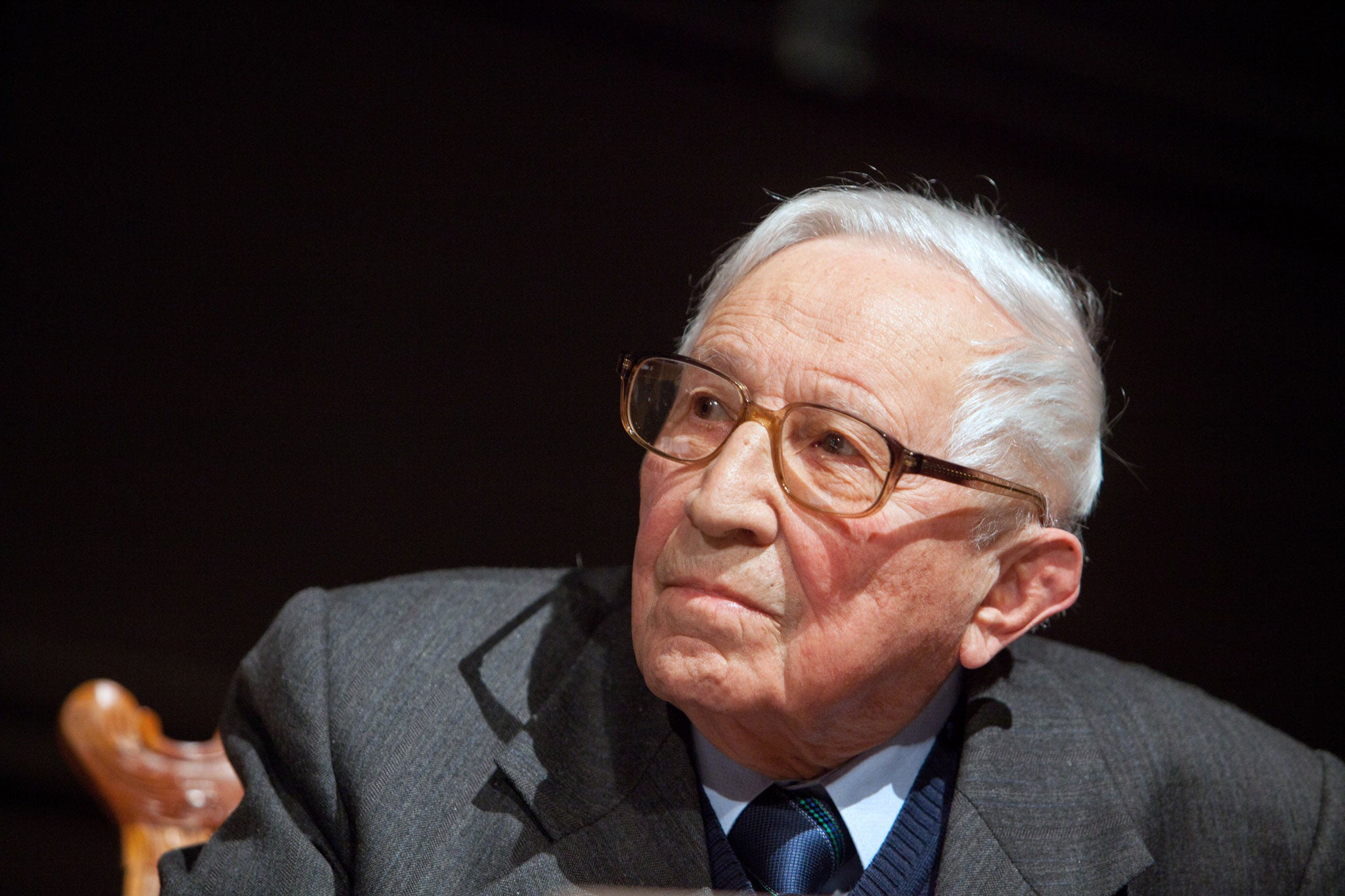Mother Departs, By Tadeusz Rózewicz, trans. Barbara Bogoczek
Every mother's son – and daughter – will appreciate this powerful chorus of family memories

Aged 91, Tadeusz Rózewicz is the last living poet of the "Golden Age" of Polish poetry that included Zbigniew Herbert, Wisława Szymborska and Czesław Miłosz. I have been lucky enough to interview three of these but it is my meetings with Rózewicz – a warm, wise and mischievous man – that remain most vivid in my memory.
Such a spirit informs the democracy of voices, the collage of forms - newspaper reportage, travelogues, anecdotes, quips, quotations in several tongues - that appear in his work, whether plays, prose or, especially, poetry. He never wanted to be the grandiloquent poet. His working motto: "The poem/ is finished/ now to break it".
Born in Radomsko, Poland, in 1921, Rózewicz published his first work, Forest Echoes, while in the home army (AK) during the German occupation. His older brother, Janusz, was murdered by the Gestapo in 1944. Rózewicz was determined that his work must reclaim language in the face of such inhumanity. In "I Did Espy a Marvellous Monster", he writes, "at home a task/ awaits me:/ To create poetry after Auschwitz".
Published in 1999, when it won Poland's leading literary award, Mother Departs also champions Rózewicz's aesthetic of assembled voices. This time, it is a portrait of his family – his mother, in particular – by the family themselves. There are diary extracts from his two brothers, poems, notebooks, a heart-breaking line found on the back of a photograph, and details of when the family fled the Gestapo. These fragments are simply, poetically, put together. The cumulative effect is astonishing.
The book's longest section is by his mother, Stefania. She recounts her village childhood in an area of partitioned Poland still ruled by the Tsar. There is poverty, hunger, illiteracy, appalling births and brutal midwives, families sleeping on straw. But Stefania also details festive rituals and superstitions, as well as ghost stories, folklore and the weddings that last several days. These vivid pictures also reveal Stefania's insight and charm.
Rózewicz aligns this account with his struggles as a writer; his ostracism from the socialist-realist literati of the early 1950s. These sections are cautious yet determined, already wise, and in some ways redolent of Rilke's Letters to a Young Poet. "Unless it's broken – smashed… poetry won't ever rise up from its grave," he writes in 1957.
At the same time his mother is dying of cancer: a long and painful departure, as she sleeps in her hospital bed, mumbling about the birds, woods, flowers of her childhood. Rózewicz massages her legs, rubs oil on her back, tries to ease her pain, while thinking of all ''mothers' eyes that penetrate hearts and thoughts". These scenes are powerful and poignant. Barbara Bogoczek's translation is excellent, as is Tony Howard's informative introduction. This is a book for anyone who has ever had a mother.
Subscribe to Independent Premium to bookmark this article
Want to bookmark your favourite articles and stories to read or reference later? Start your Independent Premium subscription today.

Join our commenting forum
Join thought-provoking conversations, follow other Independent readers and see their replies